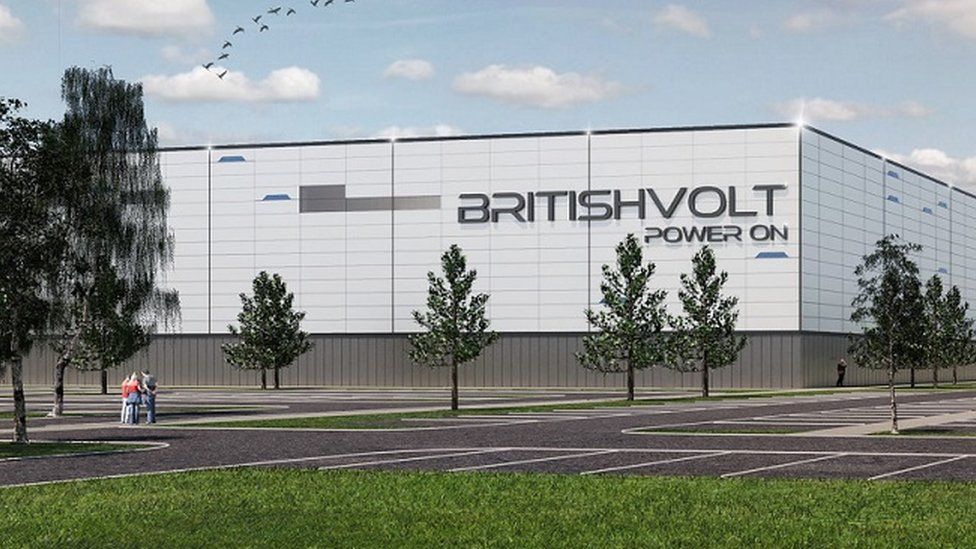ARTICLE AD BOX
 Image source, Britishvolt/PA Media
Image source, Britishvolt/PA Media
An artist's impression of Britishvolt's planned factory
By Simon Jack
Business editor
Australian firm Recharge Industries has bought the defunct battery maker Britishvolt out of administration.
Britishvolt had plans to build a £4bn battery plant near the Port of Blyth in Northumberland but collapsed last month after running out of money.
Its downfall was blamed on a lack of battery experience, proven technology, customers and revenue.
Recharge Industries is owned and run by a New York-based investment fund called Scale Facilitation.
"What we are bringing is validated technology," the fund's Australian chief executive David Collard told the BBC.
"The US defence industry has validated it and it is already supplied to the UK navy through a subcontractor."
Big ambitions
The new owners will keep the Britishvolt brand name but have very different plans for the future.
The company intends to start by focusing on batteries for energy storage and hopes to have those products available by the end of 2025.
David Collard, chief executive of Scale Facilitation
It then intends to produce batteries for high-performance sports cars.
The prospect of a much-needed plant that can produce batteries for high-volume carmakers in the UK looks many years off.
But does Mr Collard understand why many in government and the automotive industry are nervous that it won't deliver what UK industry needs without involvement from major manufacturers like Ford, GM, JLR and BMW?
"They all started somewhere before they became big. We've got accelerated growth and have been successful all along the way," he said.
Recharge Industries certainly has big ambitions. It is planning to build a similar plant in Mr Collard's hometown of Geelong, near Melbourne. He has spent time fostering relations with government and opposition leaders there.
He conceded he hadn't made the same level of connections in the UK yet, but had engaged with the owners of the Northumberland site.
"I spent a lot of time with Northumberland County Council. They genuinely want a gigafactory and the best thing for their people," he said.
Mr Collard honestly conceded he might not be the right person to deliver that.
"I'm not saying I'm the best person in the world to run this project but at the end of the day the administrators had a legal obligation to get the best return for creditors - but I do think they care, as individuals, what the future holds."
The deal comes a day after the Levelling-Up Secretary Michael Gove spoke to the Northern Echo during a visit to Blyth as he announced £20.7m in funding to for the coastal town.
"The government is ready to stand behind the right company with the right investment because we do believe that a gigafactory here in Blyth would be an appropriate way of building on the skills that local people have, and indeed the edge that this town has already displayed when it comes to renewables and the future of energy," Mr Collard said.
'Shovel ready'
Britishvolt's collapse, with the loss of more than 200 jobs, had been seen as a blow to the government's "levelling up" agenda instigated by former Prime Minister Boris Johnson.
The government had offered £100m to the former Britishvolt owners if they hit certain construction milestones.
Mr Collard said he would happily accept government funding but wanted broad political support. "Anyone will take free money but at the end of the day what we want is bi-partisan support and we have that in Australia and the US."
He described the site as "shovel ready" but said it would be six to 12 months before the first shovel would be used on site.
Ultimately, he hopes the site will create up to 8,000 jobs on site and in the supply chain.
That would be a great outcome for the region and the UK economy but this project does not seem to be the answer yet to the UK's pressing car battery needs.
The UK currently has only one Chinese-owned battery plant, which is next to the Nissan factory in Sunderland.
There are 35 plants planned or already under construction in the European Union.

 2 years ago
33
2 years ago
33








 English (US) ·
English (US) ·